Last week, one of Kristi Noem’s Immigration Customs Enforcement (ICE) agents shot and killed Reene Nicole Good in Minneapolis, Minnesota. I watched all the videos and I don’t think he was justified in shooting her. She was trying to drive away from him and I didn’t see where she hit him with her vehicle, he also recorded the whole incident on his cell phone. This incident was uncalled for and should not have shot an innocent woman.
The people who support this homeland security ‘work” are calling it justified, but I don’t think it was justified. They can say everything they want about this lady who was within her right protesting the ICE presence in her community, she still has that right she still has the right to protest things that she doesn’t agree with, just as we all have that right. I don’t believe it’s been taken away. The federal government is working on taking away things from us now, but we still have our right to free speech. We still have our right to assembly and to speak out on things that we don’t agree with.
I read that the president has stopped federal funding to the state of Minnesota. This is something as Indian people that we are very familiar with as the federal government tried to starve us once before and that’s how they got us to move on reservations. Now they are trying to starve their OWN people by cutting off their SNAP benefits, and their federal funding for other assistance programs. People say we need to keep speaking out, but we have to speak out in a way that we aren’t compromising our safety or the safety of our families,
Today, ICE is going door-to-door in Minnesota communities; they probably don’t have any warrants. They just have papers issued by Kristi Noem saying they could do whatever they want. That’s what the Calvary did back in the day. They didn’t have any papers they just came and did whatever they wanted and followed the Great White Father’s orders to kill our ancestors in cold blood. This is what’s happening today relatives. All I want is for you and your children to be safe.
If it means staying home, then stay home. I know it’s scary, but we can’t be in fear of these people because that’s what they want. They want us to be afraid. I just want y’all to take safety precautions and make sure your children are safe at all times I hope these ICE people don’t come to the reservation. I saw a couple of statements issued by Tribal presidents. I hope all the tribes in South Dakota have contingency plans and issue statements informing the people. I also hope all the tribes in South Dakota make tribal IDs and renewals complementary to tribal citizens, because that is how we prove that we are a tribal citizen and we have the right to be here.
We are the First Americans; we have every right to be here on this land. I encourage you to get your original birth certificate and carry it with you all the time. I know the driver’s license are now called real IDs, but I’m not sure how many of these so-called federal agents recognize the driver’s license as a real ID, sounds like they’re just taking whoever they want and it isn’t right, but please be safe relatives. Pray for the safety of all our relatives and communities as well as our people who are living in the cities far away from their homelands.
Over the weekend I saw reports of ICE agents kidnapping Native American people in Minnesota and housing them at Fort Snelling. Also, I watched a video of a couple who were in their home and there were many ICE agents outside their door trying to get in because a DoorDash driver ran into their home to get away from the ICE agents. This little family had a child. Also, they did not open the door because the ICE agents did not have a judicial warrant, so there was no reason to open the door for them. Federal agents need warrants to enter private property, residences and homes. You don’t have to open the door unless they have a warrant signed by a judge. This family was very afraid and called the police, but they stood strong and would not let the so-called agents into their home.
These agents depend on making us afraid; it’s hard not to be afraid when you have an armed, masked, violent thug coming at you screaming orders at you or pounding on your door or hollering at you to get out of your car.
Please always have your Tribal ID with you and your passport if you have one. Also, your birth certificate showing you were born here. We are the First “Americans” of this land; we have every right to be here, so please be safe no matter what you do.
Many federal government officials, especially ICE agents, are all infected and poisoned with the deep-seated sickness of fear Chief Flint Sky spoke of. But they forget they are committing crimes against humanity. ICE agents should remember that Nazi war criminals in their 80s and 90s are still hunted for the atrocities they committed in Germany.
Remember the words of Debbie White Plume, who said “Our love is stronger than their fear.”
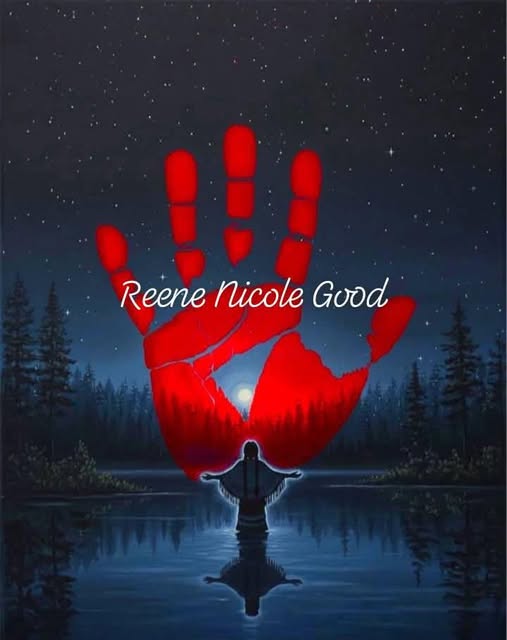
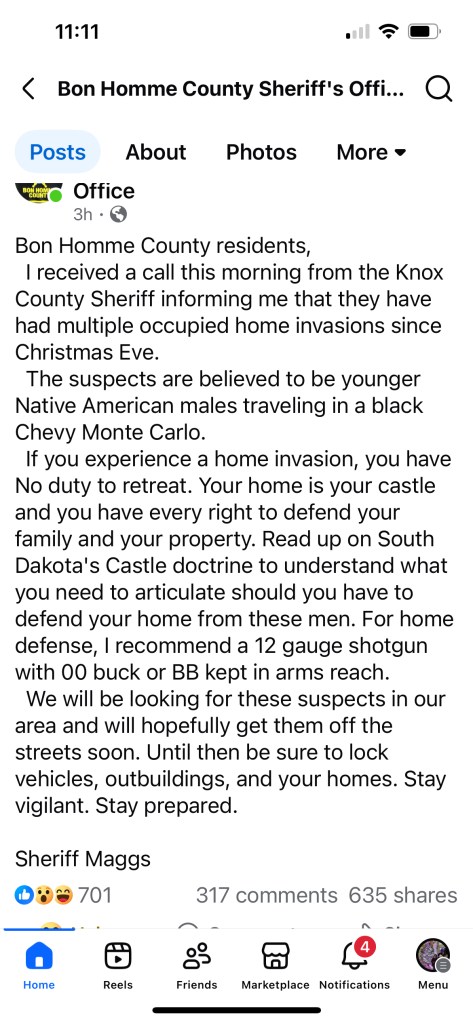
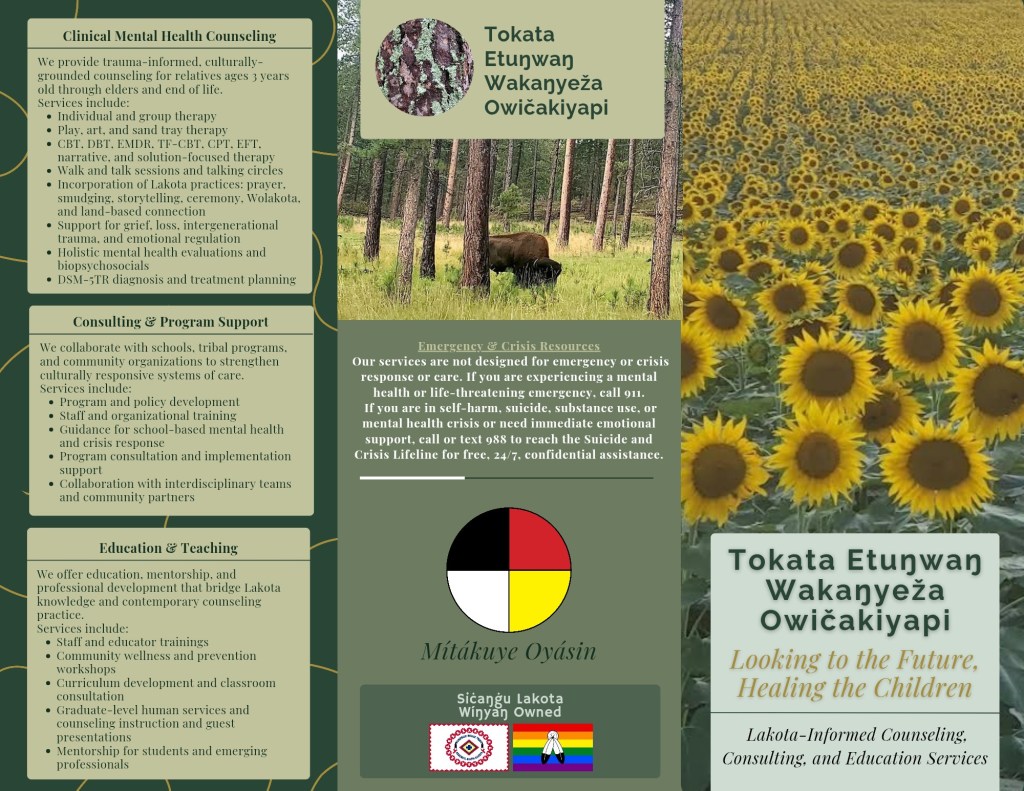
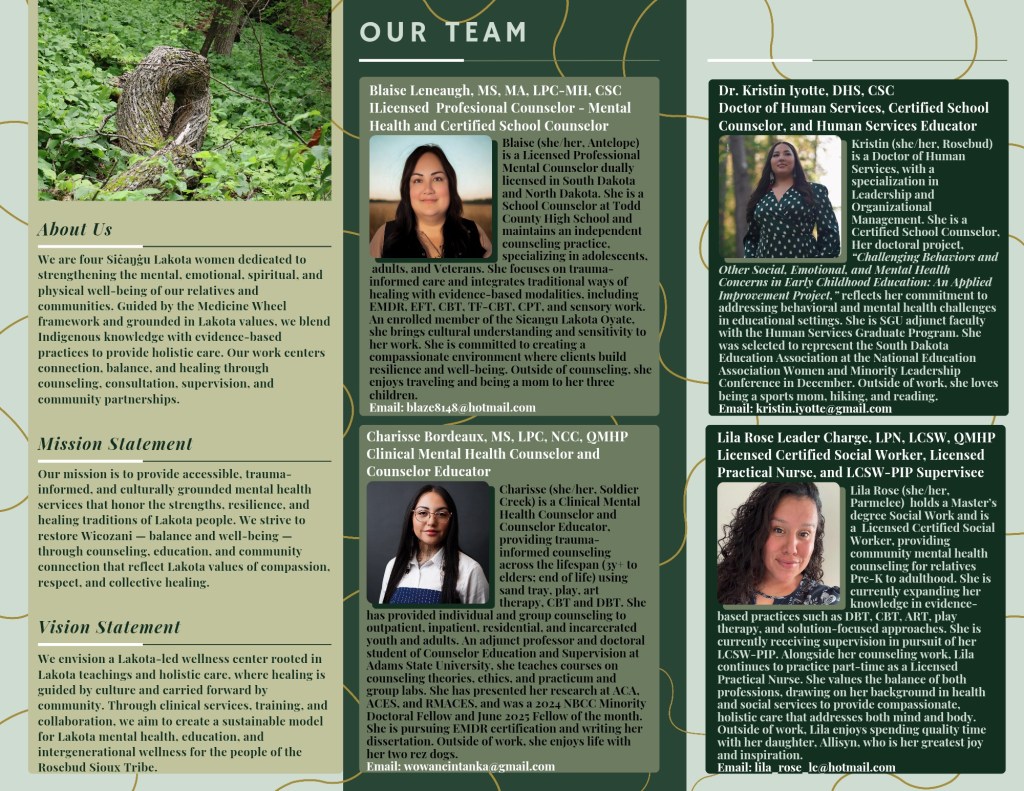
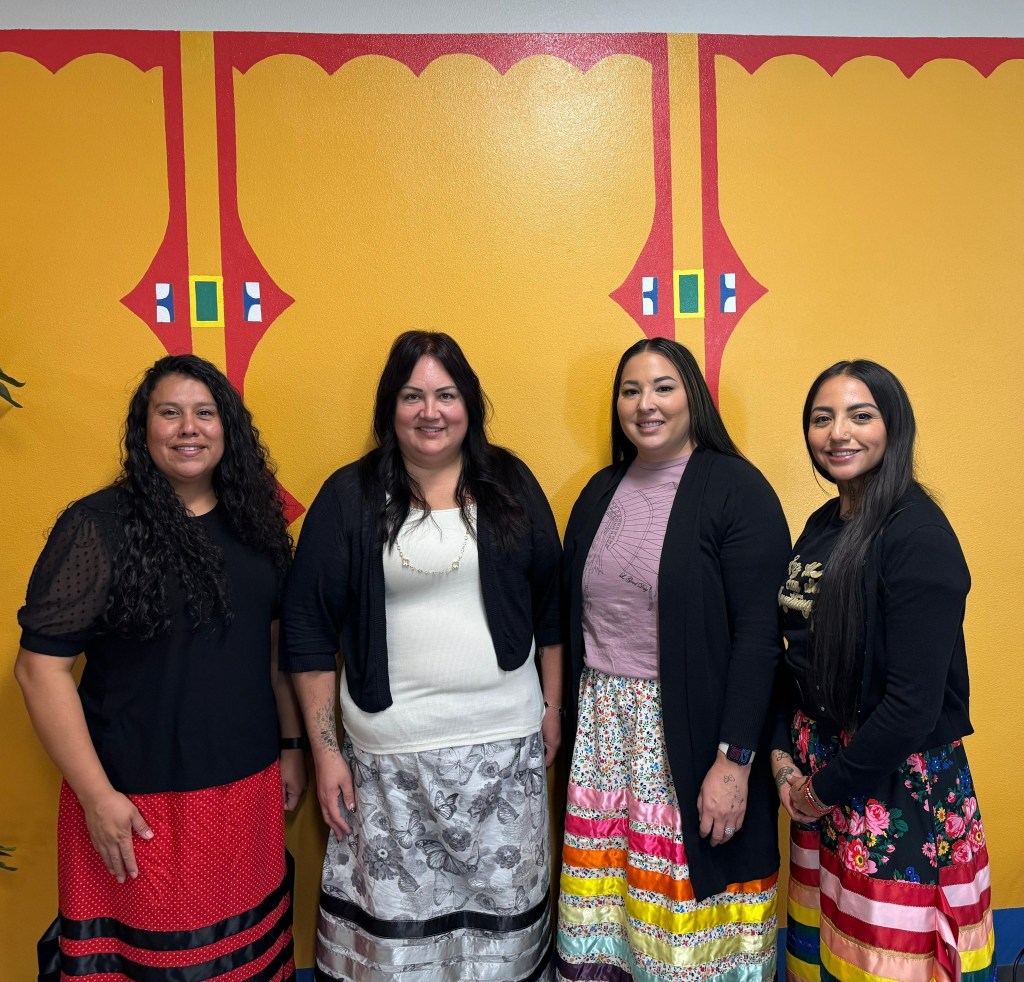
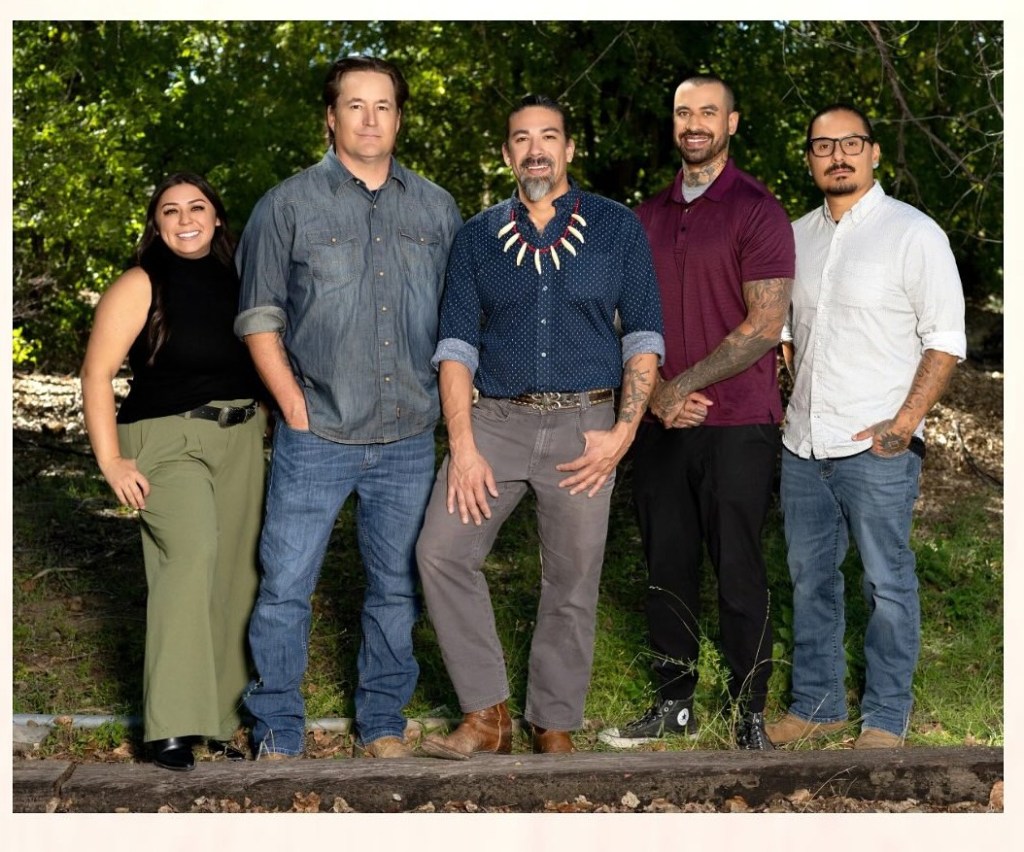
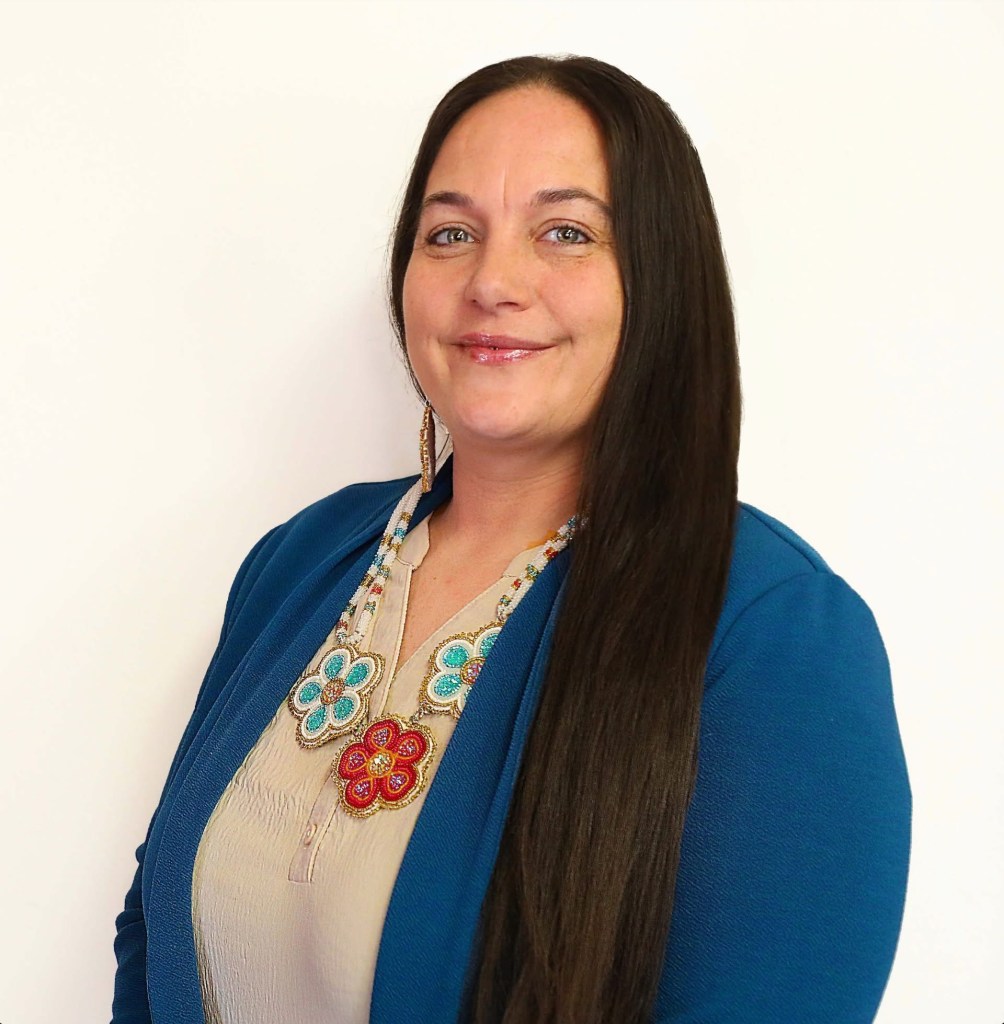
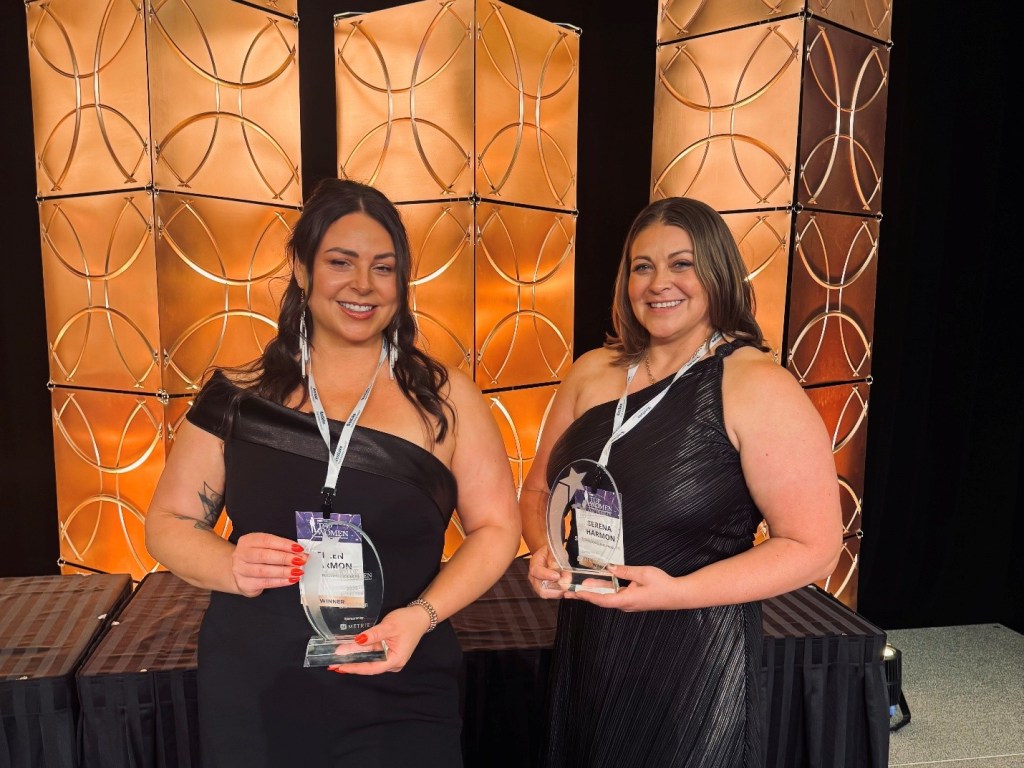
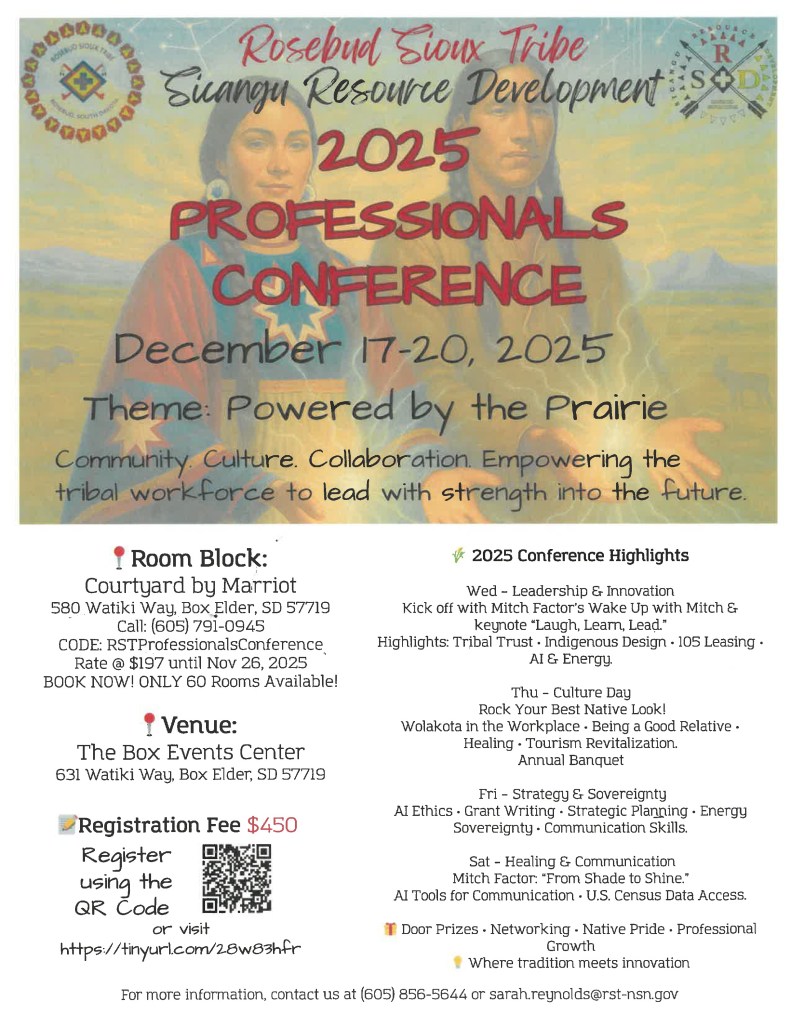

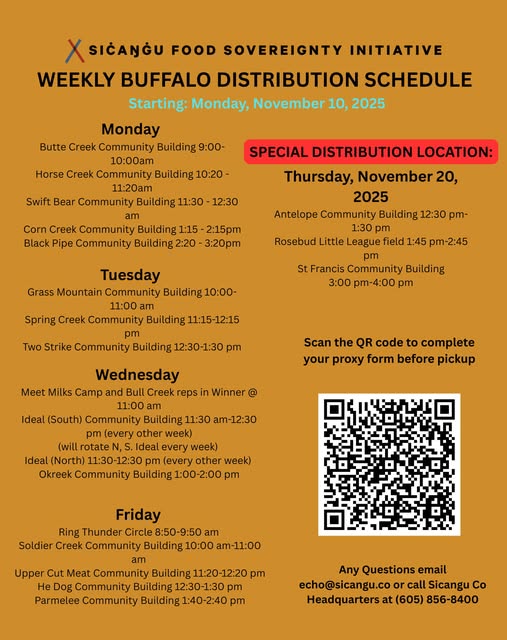

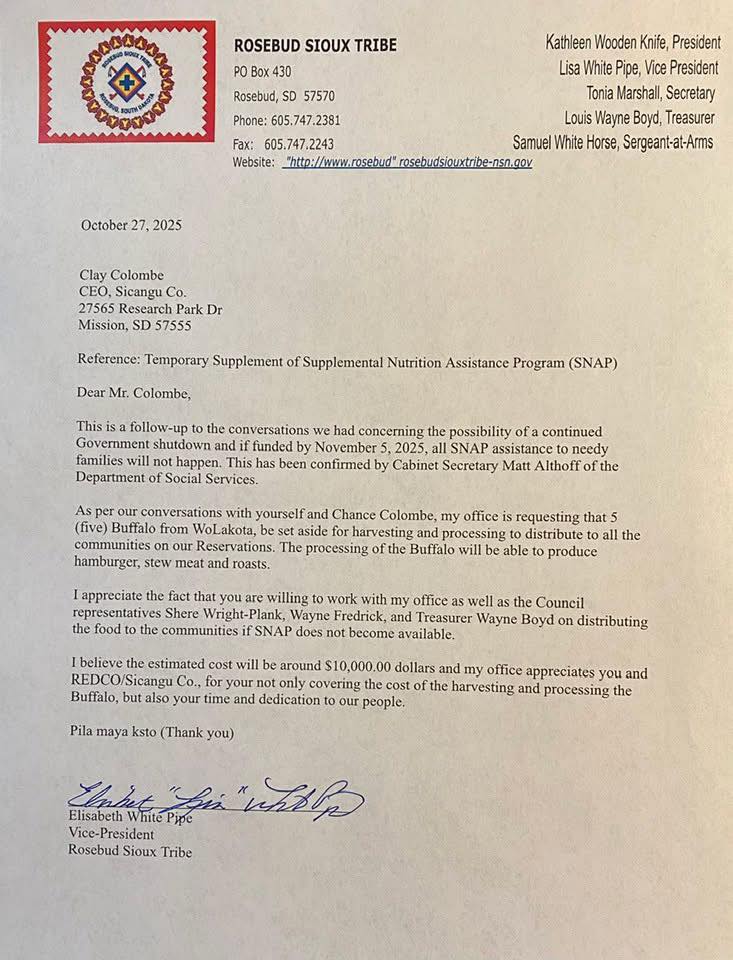
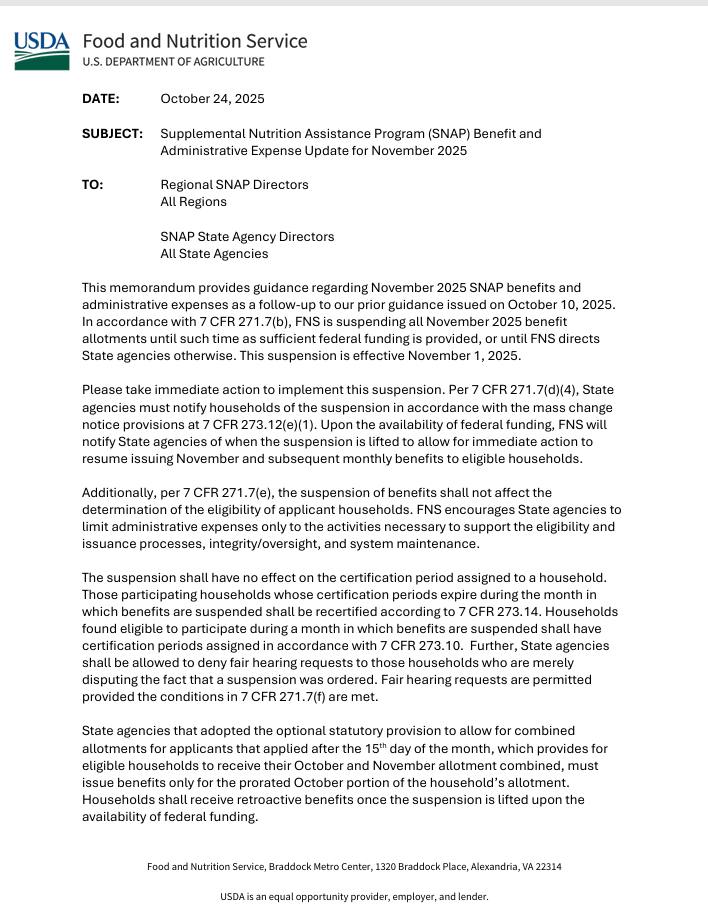
You must be logged in to post a comment.